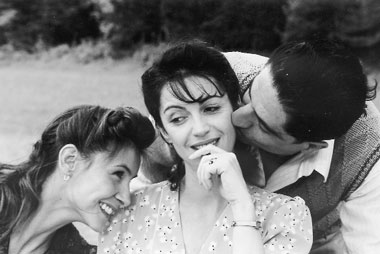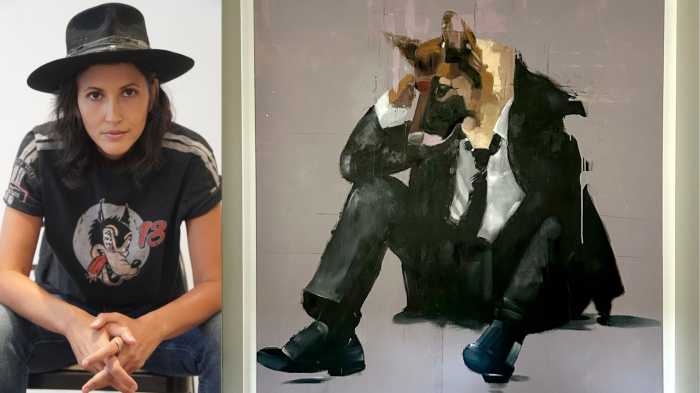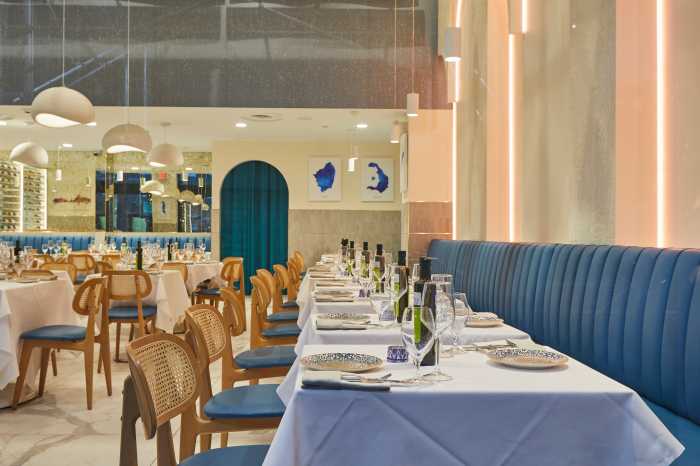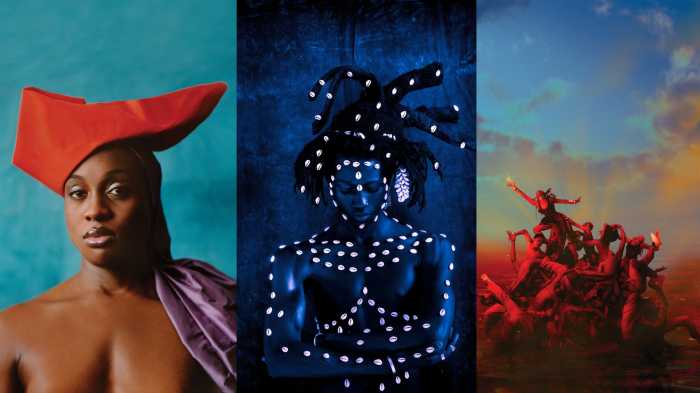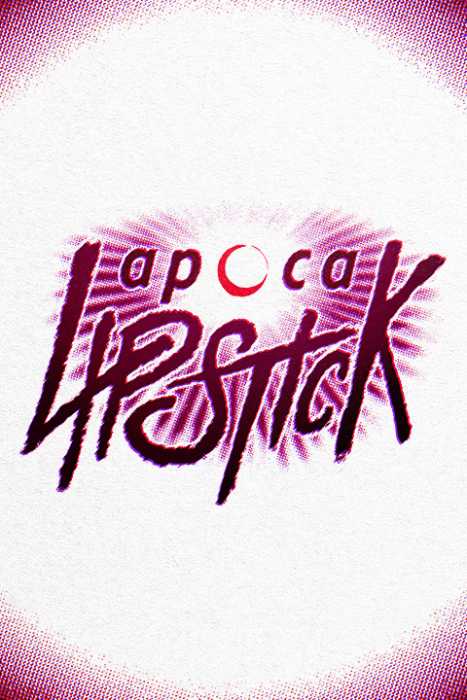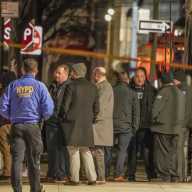By Jerry Tallmer
Holocaust survivors in France after the war
The only thing you could really call action in a quite nice movie called “Almost Peaceful” is when Monsieur Albert, the boss of a small tailoring and garment-making workshop in 1946 Paris, disgustedly drops an ill-made coat out of a third-story window.
In short, nothing happens in “Almost Peaceful,” just life happens. These being somewhat special lives, in that the handful of people at work on that floor are Jews who survived everything of the previous 10 years and are quietly, carefully, modestly, bit by bit, need by need, affection by affection, reestablishing an existence in the so-called civilized world.
There is authoritarian Monsieur Albert (Simon Abkarian), who loves his wife all the more when he loves other ladies a little, especially hero-worshipping golden-haired Andree (Julie Gayet), and there is Monsieur Albert’s wife Lea (Zabou Breitman), who for her part is romantically, uselessly, passionately hooked on silent Charles (Denis Podalydes), who stares endlessly out the window, still waiting for a wife and child who (we know) will never return from the camps.
There is Albert and Lea’s own daughter, who like hundreds if not thousands of other Jewish children, was sent out into the countryside for safety and is now a whole different letter-writing person away in, irony of ironies, a camp of another, more customary sort.
There is handsome Leon (Vincent Elbaz), who wants to be an actor, and his wife Jacqueline (Luna Azabal), who, large with child, gets us laughing with her account of the little dog who barked with a Jewish accent.
There is Maurice (Stanislas Merhar), who can’t keep away from whorehouses, and his dazzling girlfriend Simone (Sylvie Milhaud), a prostitute in the making, who, when asked if she “is in tailoring,” replies with a charming smile: “No, not at all, I don’t sew on buttons, I undo them.”
And there is the boy, Joseph (Malik Zidi), who at the last instant broke free in the roundup, and ran, and ran — “at 14 you can run fast” — while his parents went to their deaths looking straight ahead so as not to give him away.
“Almost Peaceful” (“Un Monde Presque Paisible”), a prizewinner two years ago in France and now here at the Paris on 58th Street, derives from a 1993 autobiographical novel by Berlin-born, French-bred Robert Bober, who perhaps may be detected in the movie as the boy who stuffed himself to the point of vomit from a jar of strawberry jam that his hand fell on when hiding from the Jew-hunting Vichy police in a black-as-night staircase closet.
Born the same year as Bober, 1931, and not a Jew, is director Michel Deville, one of whose vivid early memories, as a schoolboy in the Paris suburb of Saint Cloud, was the day a schoolmate came to class wearing a yellow star.
“It was . . . shocking. I remember it very well,” said Michel Deville last week by telephone from Paris, his French rendered into English by a young assistant named Jeremy Apperry. Does Deville remember the roundup of French Jews on July 16, 1942, when he was 11-years-old? “A little bit, yes.”
What happened to the boy with the star? Is he alive?
“I don’t know. We changed schools.”
In a press-kit program note, author Bober says that what persuaded him to give the film rights to Deville was “[when] I heard that he was thinking of giving up directing. I was touched that after 29 films, this novel should make him feel like going on working.”
Yes, said Michel Deville, now, on the phone, that is “exactly the truth. It was only after reading this book [‘Quoi de Neuf sur la Guerre’] that I wanted to do more films. I had earlier read another book of his, ‘Berg and Beck,’ the story of two Jewish children. Accidentally. I just picked it up one day in the library.”
The producer and screenwriter is the director’s wife, Rosalinde Deville. That line about undoing buttons is hers, he revealed.
“We had to invent the direction of the film, because the book is a succession of little stories that make up one big story.
“For example, the end of the movie is a big party on the grass. In the book that’s told in a series of letters. We made a whole sequence of it.”
Yes, and an exquisite, heart-stopping sequence indeed, evocative of the last great shot in Bergman’s “Wild Strawberries,” the last great circus roundup in Fellini’s “8 1/2,” the entirety of Jean Renoir’s “Picnic on the Grass,” and of course the progenitor of them all, Manet’s “Le Dejeuner sur l’Herbe.”
“Thank you,” said Michel Deville. “But when I make a film, I don’t think of all those others.”
He is the son of a man who had a small factory of five or six workers “building flower pots” — a small factory not unlike the tailoring workshop of Monsieur Albert, one gathers. Maman took care “of the financing and the delivery.”
In 1942 the English bombed the environs of Saint Cloud with its Renault fctory, in 1943 the Americans. At one point in the film, Monsieur Albert says with a shrug, to Andree’s sob story about being forced to walk naked through town for sleeping with a German soldier: “We all had our war.”
Says Michel Deville: “I don’t think you really direct actors, unless you have a vocation as a military commander or a mentor. I think you choose actors, just as they choose you . . . That indeed means that I do not direct them but rather that they take me somewhere and thrill me.”
Low-key can be thrilling too. “Almost Peaceful” is proof of that.
Read More: https://www.amny.com/news/rejuvenating-the-leftie-spiel/



